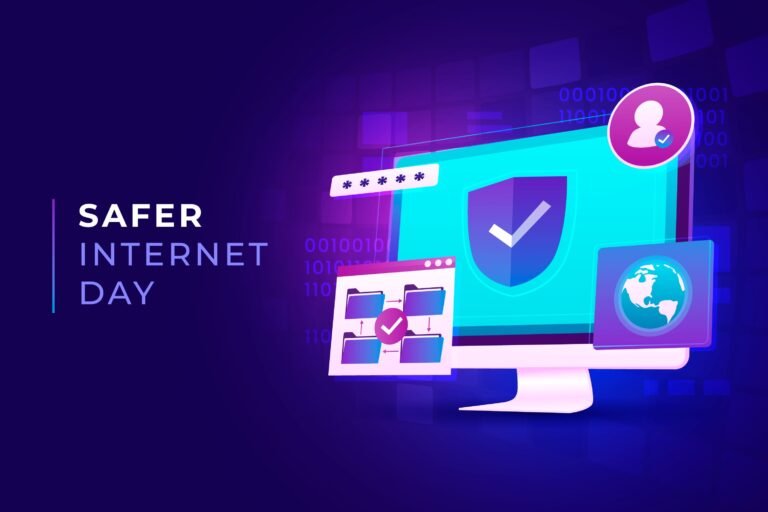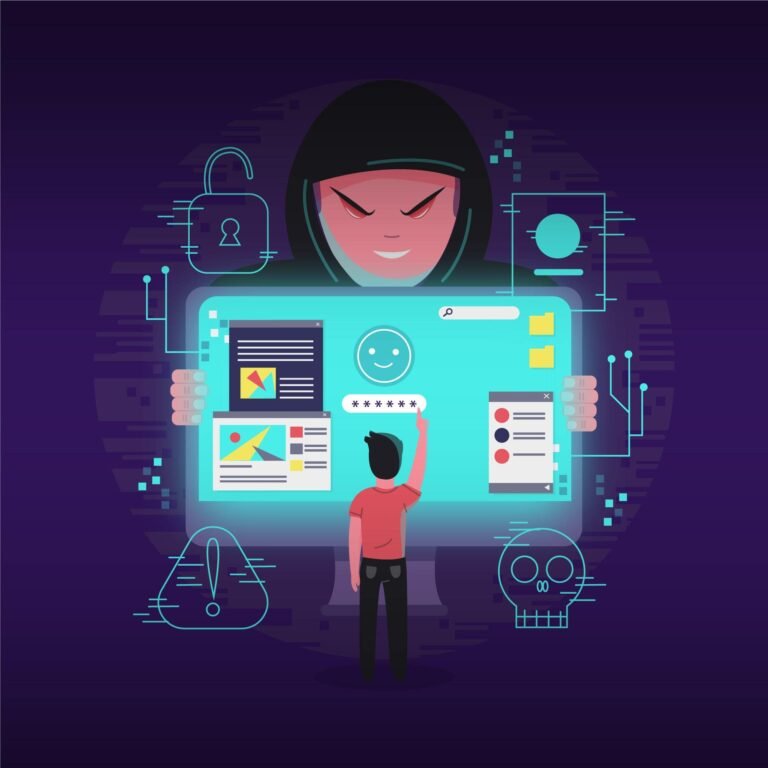How to Start a Career in Cyber Security with No Experience
The significance of cybersecurity in the quickly changing digital landscape of today cannot be emphasized. The risks to our digital infrastructure are growing along with technology, which makes cybersecurity experts more important than ever. You don’t need to worry if you’re passionate about protecting digital assets but are unsure about How to Start a Career in Cyber Security with No Experience, this guide will assist you in navigating the path to becoming a cybersecurity expert.
Introduction
Definition of Cybersecurity
Cybersecurity stands by data, networks, and computer systems from online threats. It includes a variety of procedures, tools, and methods aimed at ensuring the privacy, accuracy, and accessibility of data.
Growing Demand for Cybersecurity Professionals
Organizations in a variety of industries are actively looking for qualified cybersecurity specialists to protect their digital assets due to the rising frequency and sophistication of cyberattacks. There is a fantastic chance for anybody wishing to enter the field because of this expanding need.
Overcoming the Challenge of No Experience
It may seem impossible to begin a career in cybersecurity without any prior experience, but it is possible with the correct strategy. You will be guided through the necessary steps to get started on your adventure by this guide.
Understanding the Basics
Core Skills Needed
Before joining the rapidly evolving world of cybersecurity, it is imperative to establish a solid foundation in fundamental skills. These abilities are the foundations of a prosperous career in this dynamic field.
Programming Proficiency:
- Acquire knowledge of programming languages like C++, Java, and Python. These languages are essential for understanding and writing scripts and tools related to cybersecurity.
- Work on code projects that are related to security topics to obtain practical experience. This improves your understanding of cybersecurity concepts while simultaneously improving your programming abilities.
Networking Concepts:
- Gain a thorough understanding of the architecture, security procedures, and networking protocols. Learn about concepts such as DNS, VPNs, firewalls, and TCP/IP.
- Practice setting up and configuring networks in virtual environments to apply theoretical knowledge to practical scenarios.
Operating Systems Knowledge:
- Learn everything there is to know about different operating systems, including Windows, Linux, and macOS. Cybersecurity experts frequently have to secure systems that run on several operating systems.
- Discover the security characteristics unique to each operating system and discover efficient ways to reduce vulnerabilities.
Importance of Continuous Learning
Continuous learning is not just encouraged, but essential in the fast-paced field of cybersecurity. Professionals must keep on top of the latest developments in the continually changing world of risks and technologies.
Stay Informed About Threats:
- Regularly follow cybersecurity news and threat reports. Knowing the current dangers gives you the ability to put security measures in place that work.
- Get timely updates on new threats and vulnerabilities by subscribing to reliable cybersecurity blogs, podcasts, and newsletters.
Participate in Training and Workshops:
- Enroll in online courses, workshops, and webinars given by cybersecurity experts and institutions. These resources offer insightful information about the newest methods, instruments, and best practices.
- Look at online learning environments like Coursera, Udacity, and edX where specialists in the field can teach specialized cybersecurity courses.
Engage with the Cybersecurity Community:
- Participate in cybersecurity-focused social media communities, discussion boards, and online forums. By participating in the community, you can exchange knowledge, look for guidance, and learn about market trends.
- Participate in online or local gatherings to establish connections with like-minded people and experienced industry experts.
Networking and Building a Solid Foundation
A successful career in cybersecurity requires developing a strong fundamental knowledge base and establishing a powerful network within the sector.
Attend Networking Events:
- Engage in active participation in cybersecurity workshops, conferences, and social gatherings. These events offer chances to network with fellow enthusiasts, mentors-to-be, and industry professionals.
- Create a summary that highlights your abilities, interests, and desire to learn to facilitate professional connections.
Join Online Platforms:
- Make use of social media sites such as LinkedIn, where cybersecurity experts frequently exchange thoughts, job openings, and news from the field. Make a thorough profile that highlights your goals and abilities.
- As a way to show the community that you are passionate about cybersecurity, join relevant LinkedIn groups and participate in discussions.
Contribute to Open Source Projects:
- Participate in cybersecurity open-source projects on websites such as GitHub. This allows you to work with experienced programmers and highlights your useful abilities to prospective employers.
- Participate actively in discussions about ongoing projects, ask for input, and gain knowledge from other contributors’ experiences.
A successful career in cybersecurity is mostly dependent on developing a strong knowledge of key skills, keeping up with industry advancements, and actively participating in the cybersecurity community. We’ll go into more detail on choosing a course of study and getting real-world experience in the upcoming sections to help you advance in this exciting field of study.
Educational Paths

Formal Education Options
Starting a career in cybersecurity frequently starts with a strong educational background. Formal education can offer an organized learning environment and certifications that improve your marketability, even though it is not required.
Pursue a Relevant Degree:
- Take into account enrolling in a degree program in cybersecurity, information technology, or computer science. Numerous academic institutions provide specialized courses covering fundamental cybersecurity ideas.
- A bachelor’s or master’s degree may be helpful, particularly for positions needing an in-depth understanding of intricate cybersecurity concepts.
Look for Cybersecurity Programs:
- Look for organizations that provide specialized cybersecurity courses. The goal of these programs is to give students the information and abilities necessary for a prosperous career in the industry.
- Seek programs authorized by respected cybersecurity associations to make sure the course material satisfies industry requirements.
Participate in Internship Programs:
- Look at universities that have ties to the business; they might have internship programs with top cybersecurity companies. Internships offer practical experience and insightful perspectives into the daily activities of cybersecurity experts.
Online Courses and Certifications
Online education has grown to be an effective tool for certification and skill acquisition in the digital age. You can learn at your own pace with the flexibility of online certification programs and courses.
Explore Online Courses:
- Numerous cybersecurity courses from renowned colleges and business professionals are available on platforms such as Coursera, edX, and Udacity. Choose courses that correspond with your interests and goals in life.
- To develop a broad skill set, concentrate on taking classes on subjects like network security, penetration testing, and ethical hacking.
Pursue Recognized Certifications:
- To prove your abilities, get certificates accepted by the business. In the cybersecurity world, certifications such as CompTIA Security+, Certified Information Systems Security Professional (CISSP), and Certified Ethical Hacker (CEH) are highly regarded.
- These credentials not only broaden your knowledge but also help employers find your resume more appealing.
Specialize with Advanced Certifications:
- As your career develops, think about obtaining advanced cybersecurity certificates in particular fields. Mobile security, cloud security, and incident response are a few examples of specializations.
- Advanced certificates provide access to specialized cybersecurity professions and prove subject experience.
Gaining Practical Experience
Internships and Entry-Level Positions
Internships and entry-level jobs are among the best strategies to close the knowledge gap between cybersecurity theory and real-world application. These changes offer practical experience and exposure to issues that arise in the real world.
Search for Cybersecurity Internships:
- Explore internship opportunities provided by businesses, governmental organizations, and cybersecurity businesses. Numerous companies constantly look for interns to help with different security-related activities.
- Through internships, you can learn about the everyday tasks of cybersecurity experts and gain insight into the practical aspects of the industry.
Apply for Entry-Level Positions:
- Search for junior cybersecurity roles, IT support specialists, security analysts, and other entry-level positions. These jobs function as stepping stones to more senior roles and may need little experience.
- In your job applications, highlight your eagerness to pick up new skills and adjust, demonstrating your dedication to establishing a prosperous cybersecurity career.
Network with Industry Professionals:
- To network with cybersecurity professionals, go to industry events and networking sessions. Making connections can provide doors to insightful conversations and perhaps internships.
- Make use of social media sites such as LinkedIn to connect with industry experts, indicating your want to learn from their experiences and asking for guidance on potential career paths.
Personal Projects and GitHub Contributions
Making contributions to and developing personal projects is a great approach to showcase your abilities to prospective employers. Creating a portfolio on websites such as GitHub demonstrates your knowledge and commitment to cybersecurity.
Undertake Cybersecurity Projects:
- Start side initiatives that are related to your interests in the field of cybersecurity. This may involve producing a secure coding project, building a security tool, or performing vulnerability assessments.
- Display these projects on your portfolio and resume to give concrete proof of your practical abilities.
Contribute to Open-Source Projects:
- Engage in cybersecurity-related open-source projects on websites such as GitHub. Participating in ongoing projects gives you the chance to work with experienced programmers and security professionals.
- Your contributions show prospective employers and the community how committed you are to the field.
Build a Comprehensive Portfolio:
- Make a portfolio that includes the practical work you’ve done, your projects, and your contributions to GitHub. Provide thorough justifications of your assignments, the issues you resolved, and the techniques you used.
- When it comes to networking events, job applications, and interviews, a well-curated portfolio is an invaluable resource.
Participating in Cybersecurity Challenges
Participating in Capture The Flag (CTF) events and other cybersecurity challenges offers a dynamic and immersive approach to applying your skills in a real-world setting.
Explore CTF Platforms:
- Join platforms like Hack The Box, OverTheWire, and RootMe that organize CTF challenges. These platforms provide a variety of challenges for all skill levels.
- Engage in active participation in the cybersecurity community by resolving problems and picking up tips from others’ solutions.
Develop Problem-Solving Skills:
- CTF challenges are designed to test problem-solving skills and inventiveness. Seize the chance to confront challenging challenges and exercise critical thought when it comes to security.
- As proof of your ability to solve problems in the real world, record your experiences and solutions and add them to your portfolio.
Collaborate with the Cybersecurity Community:
- Interact on CTF platforms with the cybersecurity community. Talk about strategies, ask for guidance, and share your observations with other participants.
- Building connections within the community can lead to collaboration opportunities and provide useful input on your approach to addressing difficulties.
An essential component of developing into a well-rounded cybersecurity expert is gaining real-world experience through internships, side projects, GitHub contributions, and cybersecurity challenges. We’ll go into more detail about how networking within the cybersecurity community can help you advance your career in the next section.
Building a Strong Network

Attending Industry Events and Conferences
The key to a successful cybersecurity profession is networking. Making contacts in the field offers doors to possible job chances, mentorship opportunities, and useful knowledge.
Identify Relevant Events:
- Find local and international cybersecurity conferences and events by doing some research. In the cybersecurity community, conferences such as RSA Conference, Black Hat, and DEFCON are well-known.
- Select activities that complement your interests and professional objectives. A variety of technical seminars, workshops, and networking opportunities are offered at many conferences.
Prepare an Elevator Pitch:
- Create an easily understood and captivating elevator pitch that highlights your background, interests, and career goals in cybersecurity. A compelling pitch at a networking event leaves a lasting impact.
- To make sure that you can confidently present your pitch to pros in the business when the chance to do so presents itself, practice it.
Actively Participate in Sessions:
- Participate in panel discussions, workshops, and technical sessions to learn more and stay up to date on industry trends. Engaging in these sessions can help you connect with professionals who share your interests.
- Don’t be afraid to voice your opinions and ask questions to demonstrate your passion for the cybersecurity industry.
Joining Cybersecurity Communities
Communities, both online and off, offer opportunities for networking, cooperation, and ongoing education. By becoming a member of these groups, you can access the pooled expertise of cybersecurity experts.
Explore Online Forums and Groups:
- Participate in online forums like Stack Overflow, Reddit’s r/netsec, and groups on LinkedIn and Discord devoted to cybersecurity. These forums encourage dialogue on a variety of cybersecurity-related subjects.
- Engage in discussions, impart your experiences, and ask seasoned experts for guidance. Using these platforms for networking can result in beneficial relationships.
Engage in Local Meetups:
- Seek out regional cybersecurity gatherings and activities in the area. Meetups offer chances to network with industry experts, share ideas, and discover employment openings in your area.
- Attend regularly to become known in the local cybersecurity scene, network with industry experts, and find possible mentors.
Utilize Social Media for Networking
- Use social networking sites like Twitter and LinkedIn to establish connections with influencers, businesses, and cybersecurity experts. To highlight your interests and areas of experience, produce and create cybersecurity-related content.
- To increase your visibility and network within the cybersecurity community, engage with postings, follow prominent figures in the field, and take part in relevant discussions.
Taking advantage of social media platforms, joining online communities, and participating strategically in industry events are all important steps in developing a strong cybersecurity network. We’ll discuss how important it is to create a resume that stands out to properly present your experiences and abilities to potential employers in the next section.
Crafting a Standout Resume
A resume is an essential tool for presenting your qualifications, experiences, and skill set to prospective employers in the cybersecurity industry. Making a good first impression and gaining prospects depend on creating a resume that stands out.
Highlighting Relevant Skills and Certifications
Tailor Your Skills Section:
- Make sure that the skills portion of your CV corresponds to the particular needs of the cybersecurity positions that you are applying for. Emphasize technical abilities including incident response, penetration testing, and tool knowledge.
- Incorporate both hard and soft skills, highlighting your capacity for teamwork, good communication, and flexibility in response to changing security threats.
Showcase Certifications:
- Establish a certificates section and make sure to highlight any relevant certifications you have earned. Credibility is added to your CV by certifications such as CompTIA Security+, Certified Information Systems Security Professional (CISSP), and Certified Ethical Hacker (CEH).
- Specify the name of the certification, the body that issued it, and the achievement date.
Showcasing Personal Projects and Achievements
Create a Projects Section:
- Include a section on your resume dedicated to showcasing your cybersecurity activities. Give brief overviews of each project, highlighting the problems you solved and the steps you took to address them.
- Draw attention to the tools and technology you used, highlighting their applicability to the cybersecurity industry.
Acing the Interview
Getting hired in cybersecurity frequently requires negotiating difficult interviews. It takes preparation, talent demonstration, and clear communication of your enthusiasm for cybersecurity to succeed in these interviews.
Preparing for Common Cybersecurity Interview Questions
Understand Basic Security Concepts:
- Know the basics of security, including firewalls, authentication, and encryption. Anticipate inquiries that evaluate your basic understanding of cybersecurity.
- As you demonstrate your understanding of these topics, prepare concise clear explanations.
Describe Your Technical Skills:
- Be prepared for inquiries about your technical proficiency. Prepare to talk about your knowledge of programming languages, security tools, and particular cybersecurity techniques.
- Give instances of your use of these abilities in personal or professional settings.
Discuss Relevant Certifications:
- Anticipate inquiries regarding your credentials and the motivation behind obtaining them. Explain in detail the importance of each certification and how it advances your cybersecurity knowledge.
- Connect your certificates to real-world situations or difficulties you’ve faced.
Demonstrating Problem-Solving Skills
Walk Through Past Experiences:
- Get ready to talk about previous instances in which you faced and overcame cybersecurity obstacles. To organize your responses, use the STAR (Situation, Task, Action, Result) technique.
- Highlight your approach to problem-solving, demonstrating your capacity to assess circumstances and put practical ideas into action.
Solve Scenario-Based Questions:
- Prepare for questions that assess your critical thinking abilities using scenarios. In response to these questions, which frequently pose hypothetical cybersecurity incidents, you are asked to describe the precautions you would take.
- Develop your ability to analyze different situations while taking both tactical and strategic factors into account.
Highlight Personal Projects:
- Use side projects to showcase your problem-solving abilities. Discuss problems you experienced during project development and how you overcame them.
- Highlight the significance of your efforts by providing examples of how they apply to actual cybersecurity situations.
It takes a combination of technical knowledge, problem-solving ability, and a genuine enthusiasm for the topic to ace cybersecurity interviews. You may make a strong impression on potential employers by being well-prepared for frequently asked questions, emphasizing your experiences, and demonstrating your passion for cybersecurity. We’ll look at methods for ongoing cybersecurity improvement in the sections that follow.
Continuous Improvement

In the constantly developing industry of cybersecurity, staying relevant and succeeding needs a dedication to continual improvement. This entails developing specialized knowledge, obtaining advanced qualifications, and keeping up with market developments.
Staying Updated with Industry Trends
Follow Cybersecurity Blogs and News Outlets:
- To keep up with the newest developments, dangers, and trends in cybersecurity, regularly visit reliable news sources, blogs, and trade journals.
- You may make sure you get timely updates on important changes by subscribing to newsletters and configuring news alerts.
Attend Webinars and Virtual Events:
- Attend webinars and other online gatherings organized by organizations and cybersecurity specialists. These sites include case studies from the real world, best practices, and upcoming technologies.
- Participate fully in Q&A sessions to learn more and build relationships with presenters.
Contribute to Online Discussions:
- Participate in cybersecurity-focused social media communities, discussion boards, and online forums. Engage in active participation in discussions, offer your opinions, and consult with other specialists.
- Talking with others gives you a variety of perspectives and keeps you aware of the difficulties that cybersecurity professionals throughout the world confront.
Cybersecurity requires constant progress, which includes focusing on specialized areas, obtaining advanced certifications, and keeping up with industry trends. In the always-changing field of cybersecurity, you may establish yourself as a valuable asset by taking a proactive approach to learning and development. In the parts that follow, we’ll look at methods for overcoming obstacles and finishing the path to a successful cybersecurity job.
Overcoming Challenges
Starting the field of cybersecurity is not without its difficulties. Overcoming these barriers—which range from imposter syndrome to failure-related fear is crucial for both professional and personal development.
Dealing with Imposter Syndrome
Acknowledge and Normalize Feelings:
- Realize that even among seasoned experts, imposter syndrome is a typical occurrence. Recognize that it’s normal to feel weak or self-conscious, particularly in a profession that is changing quickly like cybersecurity.
- Make these emotions more normal by reminding yourself that the nature of the work requires constant learning and adaptability.
Celebrate Achievements:
- No matter how small your achievements might seem, take the time to enjoy them. Whether it’s finishing a difficult assignment, earning a certification, or solving a security issue, make sure you document your accomplishments.
- Thinking back on your successes combats imposter syndrome and helps you become more confident.
Seek Mentorship and Guidance:
- Make connections with coworkers or mentors who can offer advice and assistance. Talk to an expert in the industry about your worries, share your struggles, and get tips on getting over impostor syndrome.
- Mentors can help you get over times of self-doubt by providing insightful advice and comfort.
Embracing Failure as a Learning Opportunity
Shift Perspectives on Failure:
- Consider mistakes as teaching moments rather than as defeats. In the ever-changing field of cybersecurity, obstacles and failures are inevitable.
- Accepting failure allows you to grow as a cybersecurity expert by helping you learn from your errors, hone your abilities, and build resilience.
Analyze and Adapt:
- When faced with difficulties, investigate the root causes as thoroughly as possible. Determine what needs to be improved, ask mentors or peers for advice, and come up with plans for handling related circumstances in the future.
- In the constantly evolving cybersecurity sector, the capacity to adjust and learn from failures is an essential quality.
Cultivate a Growth Mindset:
- Cultivate a growth mentality by having faith in your capacity to grow and learn in the long run. Accept obstacles as chances to increase your knowledge and skill set.
- Having a growth mindset makes it easier for you to face challenges head-on and increases your potential for ongoing development.
Seeking Mentorship and Guidance
Identify Potential Mentors:
- Seek mentorship opportunities from seasoned cybersecurity professionals. Seek out people who are dedicated to helping others, have a variety of areas of experience, and are willing to share their knowledge.
- Mentoring offers direction, support, and an insightful viewpoint from someone who has overcome comparable obstacles.
Establish Regular Check-Ins:
- Set up routine check-ins with your mentor to talk about your professional objectives, difficulties, and successes. Make use of these meetings to get guidance, learn about the field, and get helpful criticism for your career advancement.
- Maintaining a good mentor-mentee connection through consistent communication lays a solid foundation of support for your cybersecurity journey.
Participate in Mentorship Programs:
- Evaluate the mentorship programs provided by professional associations, cybersecurity organizations, and educational institutions. These programs frequently place mentees with experienced mentors to provide systematic supervision and knowledge sharing.
- Participating in mentorship programs offers a disciplined environment for education and professional growth.
It takes a team effort to overcome cybersecurity obstacles, including self-awareness, optimism, and a strong support system. You can overcome obstacles and advance in your cybersecurity job by tackling impostor syndrome, accepting failure as a teaching opportunity, and looking for mentorship and advice. We’ll summarize the main ideas, provide advice for aspiring professionals, and include more resources for reading and research in the final sections.
Conclusion
It’s critical to consider your successes, difficulties, and the process of ongoing learning as you start or continue your career in the exciting and rapidly changing sector of cybersecurity. This final piece encourages your continued pursuit of cybersecurity excellence as well as a recap of the most important lessons learned.
FAQs
1. Q: How do I start a career in cybersecurity with no experience?
A: Begin by building foundational skills in areas like networking and programming. Pursue relevant educational paths, engage in personal projects, and participate in online courses and certifications. Gaining practical experience through internships and challenges is also crucial.
2. Q: What certifications are essential for a cybersecurity career?
A: Certifications such as CompTIA Security+, Certified Information Systems Security Professional (CISSP), and Certified Ethical Hacker (CEH) are highly regarded. Consider specialized certifications based on your interests, such as Certified Cloud Security Professional (CCSP) or Offensive Security Certified Professional (OSCP).
3. Q: How important is networking in a cybersecurity career?
A: Networking is paramount. Attend industry events, join online communities, and leverage social media to connect with professionals. Networking provides mentorship opportunities, insights into industry trends, and potential job prospects.
4. Q: What should I include in my cybersecurity resume?
A: Highlight relevant skills, certifications, and personal projects. Tailor your resume for each application, emphasizing experiences that align with the specific cybersecurity roles you’re targeting.
5. Q: How can I overcome imposter syndrome in cybersecurity?
A: Acknowledge and normalize your feelings. Celebrate achievements, seek mentorship, and understand that imposter syndrome is common in a field that demands continuous learning. Focus on your growth and contributions.







